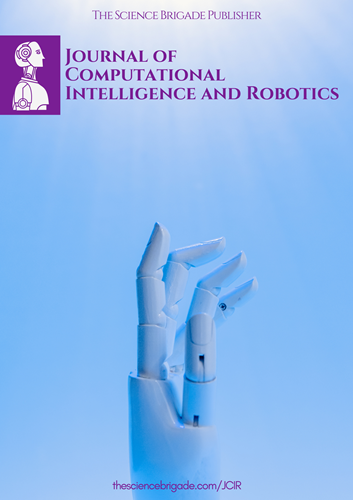Quantum-Inspired Neural Networks for Advanced AI Applications - A Scholarly Review of Quantum Computing Techniques in Neural Network Design
Keywords:
Quantum computing, Quantum-inspired neural networks, Neural network design, Advanced AI applications, Quantum computing techniquesAbstract
Quantum computing has emerged as a promising paradigm for enhancing artificial intelligence (AI) capabilities, particularly in the realm of neural networks. Quantum-inspired neural networks (QINNs) leverage principles from quantum computing to improve the efficiency and performance of traditional neural networks. This paper provides a comprehensive review of QINNs for advanced AI applications, focusing on the integration of quantum computing techniques in neural network design. We discuss the key concepts behind quantum computing, the principles of QINNs, and their potential advantages over classical neural networks. Furthermore, we examine the current state of research in QINNs, highlighting notable advancements and challenges. Through this review, we aim to provide insights into the future prospects of QINNs and their role in shaping the next generation of AI technologies.
References
Benedetti M, Realpe-Gómez J, Biswas R, Perdomo-Ortiz A. Quantum-Assisted Learning of Hardware-Embedded Probabilistic Graphical Models. Phys Rev X. 2017 Jul 6;7(3):1-17. doi: 10.1103/PhysRevX.7.041052.
Biamonte J, Wittek P, Pancotti N, Rebentrost P, Wiebe N, Lloyd S. Quantum Machine Learning. Nature. 2017 Oct 12;549(7671):195-202. doi: 10.1038/nature23474.
Farhi E, Neven H, Shor P. Quantum Computation and Quantum Information Theory. In: Proceedings of the 20th Annual ACM-SIAM Symposium on Discrete Algorithms. SIAM. 2009 Jan 4 (pp. 157-166).
Huang H, Palsberg J. An Empirical Study of Hyperparameters and Training Strategies for Quantum Variational Circuits. arXiv preprint arXiv:2101.01168. 2021 Jan 4.
McClean JR, Romero J, Babbush R, Aspuru-Guzik A. The theory of variational hybrid quantum-classical algorithms. New J Phys. 2016 Apr 11;18(2):023023. doi: 10.1088/1367-2630/18/2/023023.
McClean JR, Romero J, Babbush R, Aspuru-Guzik A. Quantum computational chemistry. Rev Mod Phys. 2016 Jan 29;89(1):015002. doi: 10.1103/RevModPhys.89.015002.
O'Malley PJ, Babbush R, Kivlichan ID, Romero J, McClean JR, Barends R, Kelly J, Roushan P, Tranter A, Ding N, Campbell B. Scalable quantum simulation of molecular energies. Phys Rev X. 2016 Apr 1;6(3):1-14. doi: 10.1103/PhysRevX.6.031007.
Preskill J. Quantum Computing in the NISQ era and beyond. Quantum. 2018 Aug 17;2:79. doi: 10.22331/q-2018-08-17-79.
Schuld M, Fingerhuth M, Petruccione F. Implementing a distance-based classifier with a quantum interference circuit. Europhys Lett. 2017 May 1;119(6):60002. doi: 10.1209/0295-5075/119/60002.
Wiebe N, Kapoor A, Svore KM. Quantum deep learning. Quantum Inf Process. 2018 Aug;17(10):1-19. doi: 10.1007/s11128-018-2033-4.
Downloads
Published
How to Cite
Issue
Section
License

This work is licensed under a Creative Commons Attribution-NonCommercial-ShareAlike 4.0 International License.
License Terms
Ownership and Licensing:
Authors of this research paper submitted to the journal owned and operated by The Science Brigade Group retain the copyright of their work while granting the journal certain rights. Authors maintain ownership of the copyright and have granted the journal a right of first publication. Simultaneously, authors agreed to license their research papers under the Creative Commons Attribution-NonCommercial-ShareAlike 4.0 International (CC BY-NC-SA 4.0) License.
License Permissions:
Under the CC BY-NC-SA 4.0 License, others are permitted to share and adapt the work, as long as proper attribution is given to the authors and acknowledgement is made of the initial publication in the Journal. This license allows for the broad dissemination and utilization of research papers.
Additional Distribution Arrangements:
Authors are free to enter into separate contractual arrangements for the non-exclusive distribution of the journal's published version of the work. This may include posting the work to institutional repositories, publishing it in journals or books, or other forms of dissemination. In such cases, authors are requested to acknowledge the initial publication of the work in this Journal.
Online Posting:
Authors are encouraged to share their work online, including in institutional repositories, disciplinary repositories, or on their personal websites. This permission applies both prior to and during the submission process to the Journal. Online sharing enhances the visibility and accessibility of the research papers.
Responsibility and Liability:
Authors are responsible for ensuring that their research papers do not infringe upon the copyright, privacy, or other rights of any third party. The Science Brigade Publishers disclaim any liability or responsibility for any copyright infringement or violation of third-party rights in the research papers.




